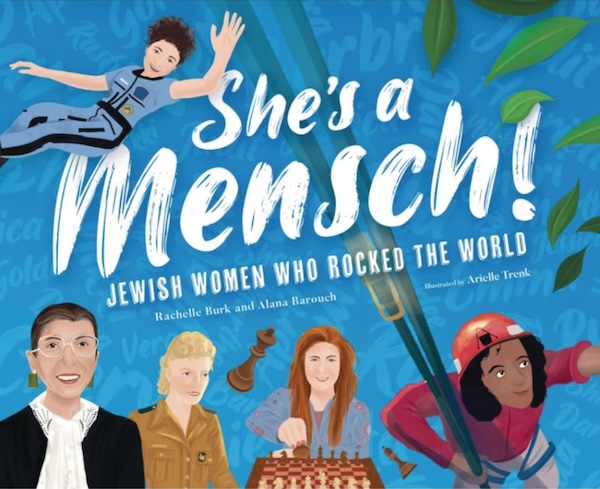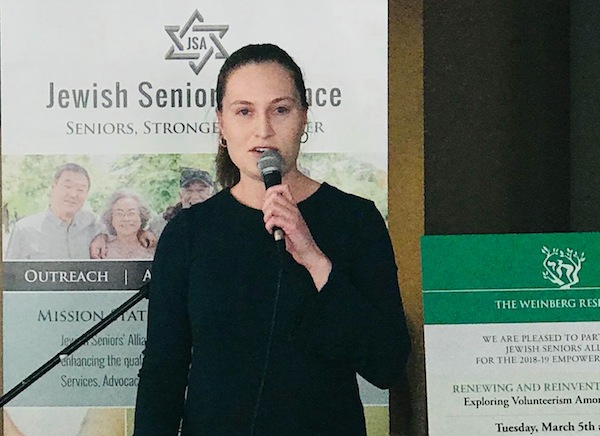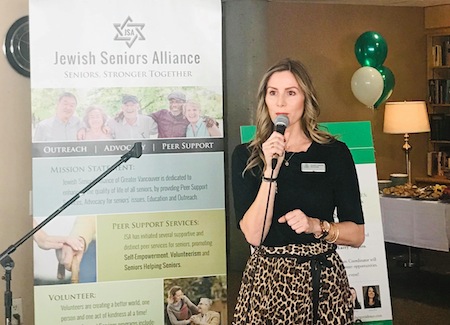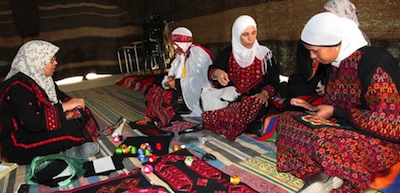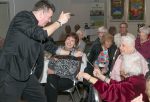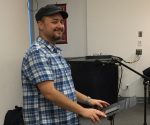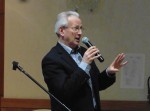In 2019, NASA astronaut and scientist Jessica Meir was part of the first all-woman spacewalk. According to 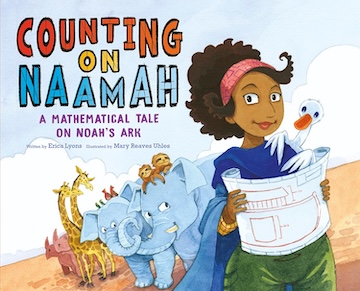 : Jewish Women who Rocked the World, she “celebrated Hanukkah in space by wearing festive holiday socks and sending a Happy Hanukkah message to earth on social media.”
: Jewish Women who Rocked the World, she “celebrated Hanukkah in space by wearing festive holiday socks and sending a Happy Hanukkah message to earth on social media.”
This is just one of the many “Fun Fact[s] to Mench’n” in this enlightening book written by the mother-daughter team of Rachelle Burk and Alana Barouch, and illustrated by Arielle Trenk. She’s a Mensch! is one of two books the JI received from Seattle’s Intergalactic Afikoman to review. The other is the perfect antidote to the “girl math” phenomenon popularized on social media, though hopefully kids under 9 aren’t engaging with that. Counting on Naamah: A Mathematical Tale on Noah’s Ark by writer Erica Lyons and illustrator Mary Reaves Uhles imagines Noah’s wife as being a genius in math and engineering.
Using the basics of the Noah story, Counting on Naamah offers a midrash of sorts. “A midrash is a tale that begins with a story from the Torah. Then it fills in the missing pieces to imagine the rest,” explain Lyons and Reaves Uhles at the back of the book. “The story of Noah leaves a lot to the imagination. What was it actually like to live on that ark? How did they take care of all those animals? And who was the generally unnamed ‘Mrs. Noah’? Counting on Naamah tries to answer these questions.”
The story begins when Naamah is a child, and uses her talents to help each of her three brothers – with market transactions, estimated herd transport times and archery angles. She has her own projects, as well, drafting plans for a desert sand scooter, for example.
When she meets and falls in love with Noah, the two become “impossible to divide,” but Naamah retains her agency and is a crucial help in building the ark, housing and feeding the animals, and more. And Noah knows just what to do to thank her.
Counting on Naamah is a charming story, creatively and colourfully illustrated. As is She’s a Mensch!, which is a nonfiction work that highlights 20 women who “rock!”
“Jewish women ‘round the world have talent, strength and smarts,” the book starts. “They shine like stars in every field from science to the arts.
“Jewish women through the ages have helped shape history. These mensches are authors and activists, athletes and adventurers, and everything in between.”
Indeed, the women featured range from writer Emma Lazarus in 1883 to Meir, in 2019. They include familiar – Golda Meir, Barbra Streisand, Ruth Bader Ginsburg – and less familiar names, like Marthe Cohn, who was a spy for France during the Second World War; Vera Rubin, who provided proof of dark matter in the 1970s; Nalini Nadkarni, who performed the first survey of rainforest treetops in 1981; and Judit Polgár, who became a chess grandmaster at age 15, in 1991. There’s a list of 18 honourable mentions.
Each entry in She’s a Mensch! has something different: unique drawings that connect the mensch to their chosen pursuit, a four-line poem and a short blurb about the mensch, often a fun fact, and always a mensch-related question to ponder, such as, How can you help others? (Henrietta Szold) What kinds of stories can you tell? (Judy Blume) and What great adventures do you dream of going on? (Cheryl and Nikki Bart)
 Both of these books would make great Hanukkah gifts for kids of any gender. As would this year’s Hanukkah addition to Intergalactic Afikoman publisher Brianna Caplan Sayres’ and illustrator Christian Slade’s Diggers series, which has more than 10 books, and counting.
Both of these books would make great Hanukkah gifts for kids of any gender. As would this year’s Hanukkah addition to Intergalactic Afikoman publisher Brianna Caplan Sayres’ and illustrator Christian Slade’s Diggers series, which has more than 10 books, and counting.
Where Do Diggers Celebrate Hanukkah? (published by Penguin Random House) would be a happy addition to a kid’s Diggers collection, or a fun introduction to the series. For the diggers, cranes, mixers, armoured trucks, tankers, dump trucks and food trucks, we’re asked to wonder what each does for an aspect of the holiday. For example, “Does Mom dig up the ancient jar that held the precious oil?” And the cranes, “Do they decorate their construction site with ‘Happy Hanukkah’ all around?” After a day of serving meals outside, do food trucks “serve sufganiyot and other food that’s fried?” Inquiring minds will want to know.

